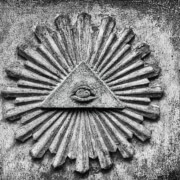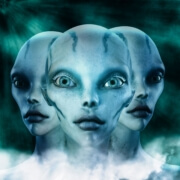New World Order

New World Order: Unmasking the Global Agenda
The term New World Order (NWO) has been at the center of political, religious, and conspiracy discussions for decades. It refers to a proposed shift in global governance where a single, centralized authority exerts control over nations, resources, and populations. Although some dismiss it as a conspiracy theory, historical evidence and political statements suggest there is more to the story.
What Is the New World Order?
The phrase gained popularity after World War I and again following World War II. However, it became mainstream when President George H. W. Bush used it during a 1990 speech, referring to a new era of global cooperation and peace. To many, though, it hinted at centralized power in the hands of a global elite.
According to this theory, international organizations like the United Nations, World Economic Forum, and IMF play key roles in steering the world toward unified control. These institutions, some argue, aim to erode national sovereignty and enforce a singular global system.
Historical Roots and Political Influence
The idea of global control isn’t new. Ancient empires like Rome sought to dominate all known territories. In modern times, secretive groups like the Bilderberg Group, the Council on Foreign Relations, and the Trilateral Commission have been accused of influencing major global policies behind closed doors.
Political leaders across the decades have hinted at the New World Order. Winston Churchill, Woodrow Wilson, and Henry Kissinger all spoke about global unity and international oversight. While these terms sound idealistic, critics warn they mask the true intent—elite domination over the masses.
Key Players and Organizations
Several groups are consistently mentioned in NWO discussions:
- The United Nations (UN): Often viewed as a platform for global governance.
- World Economic Forum (WEF): Known for the “Great Reset” initiative, which has raised concerns about economic restructuring and loss of individual freedoms.
- Bilderberg Group: A private gathering of world leaders, bankers, and CEOs that keeps agendas confidential.
- International Monetary Fund (IMF) and World Bank: Accused of using debt to control smaller nations.
For a deeper look into these groups, visit World Economic Forum and IMF.
The Role of Technology and Surveillance
Modern technology plays a major role in the alleged New World Order agenda. Mass surveillance, digital IDs, facial recognition, and central bank digital currencies (CBDCs) are tools that could enable total control over individuals.
According to a American Civil Liberties Article, advancements in surveillance could shape the future of governance. While promoted as security measures, critics argue they pose serious risks to privacy and civil liberties.
Why People Are Concerned
People are increasingly skeptical of global narratives. Events like the COVID-19 pandemic, the rise of digital currencies, and global climate initiatives have raised questions. Are these crises being used to justify more centralized control?
In many circles, especially among researchers like Jordan Maxwell, the New World Order represents more than politics—it reflects a spiritual war between freedom and control, light and darkness. At JordanMaxwellVideos.com, we explore how ancient symbols, secret societies, and hidden forces shape this reality.
Is the New World Order Inevitable?
That depends on who you ask. Supporters of global governance see it as a way to prevent war, tackle climate change, and improve international cooperation. Critics see it as a slippery slope toward totalitarianism. The truth may lie somewhere in between—or it may be much darker.
Understanding the origins, mechanisms, and key players behind the New World Order is crucial. It allows individuals to make informed decisions, protect their freedoms, and resist manipulation.





